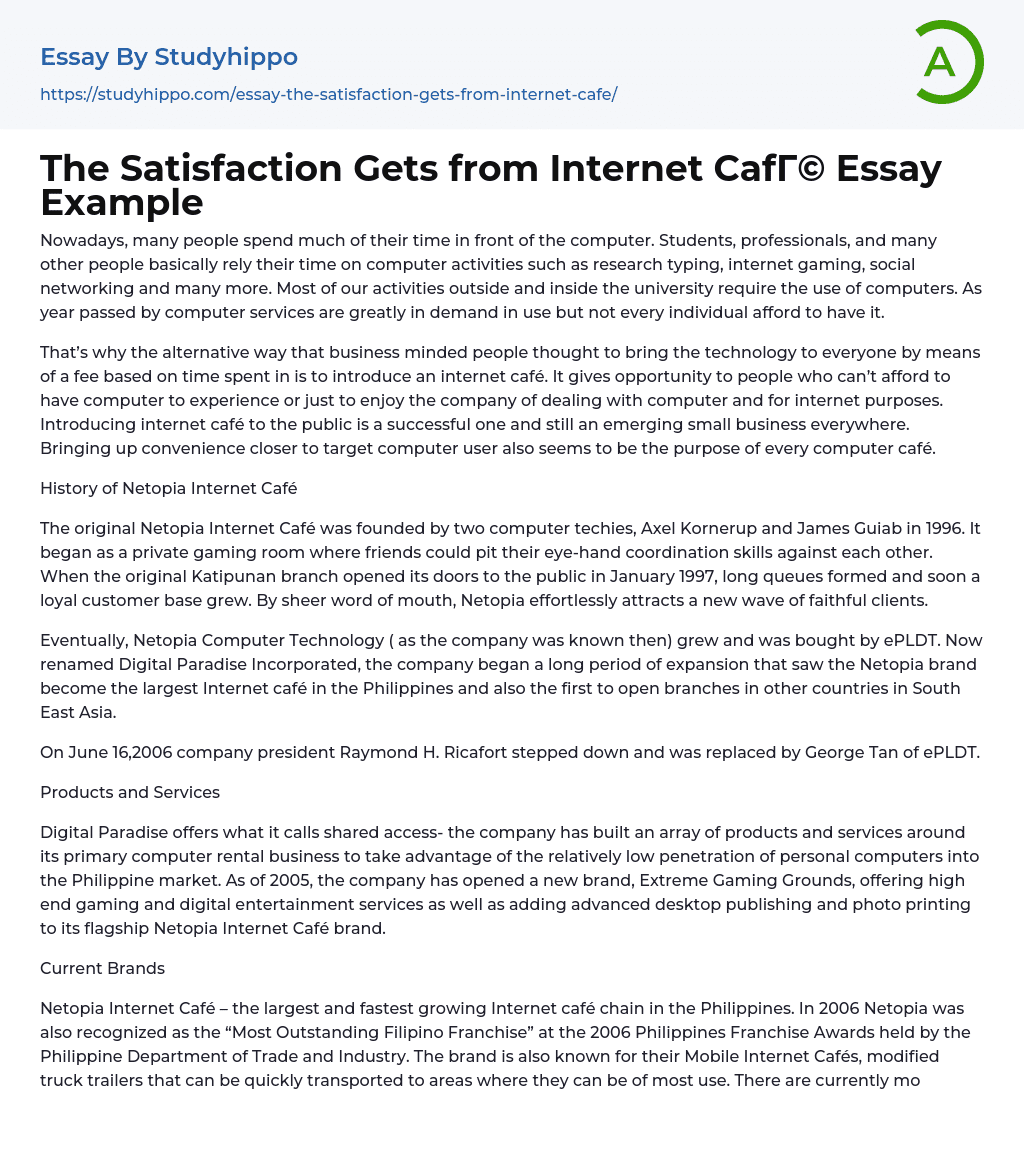In the contemporary digital age, computers significantly impact our daily lives. People from diverse backgrounds, including students and professionals, rely immensely on these machines for activities like research work, typing tasks, online gaming, social media engagement and much more. The role of computers in our everyday functions has profoundly entrenched itself in both personal and educational spheres. As we progress further into this era, the demand for computer services escalates but continues to be out of reach for some.
This is precisely why entrepreneurially inclined individuals are opting for an alternate method to democratize technology access, by launching internet cafes and charging a fee based on time spent there. Internet cafes enable those who cannot afford a personal computer to still utilize and enjoy the benefits of using one, especially for internet-related purposes. The introduction of
...such cafes to the public has proven to be a successful undertaking, continuing to grow as an emergent small business sector globally. The convenience provided by these computer cafes, particularly to their target user group, seems to be a key purpose of this venture.
Netopia Internet Cafe's Historical Background
Two tech enthusiasts, Axel Kornerup and James Guiab, launched the original Netopia Internet Cafe in 1996. Initially, it was a private game room where friends could challenge their manual dexterity. However, when the Katipunan branch opened to the public in January 1997, it rapidly gained popularity and attracted a strong following. The customer base grew largely due to word-of-mouth advertising, leading to a consistent influx of new and devoted clients at Netopia.
Eventually, a company once recognized as Netopia Computer Technology grew and consequently becam
part of ePLDT's portfolio. This transition was followed by a rebranding to Digital Paradise Incorporated, signifying the initiation of a significant expansion period that resulted in Netopia emerging as the largest Internet cafe throughout the Philippines. Moreover, it pioneered by being the first such establishment to set up branches in other Southeast Asian countries.
On June 16, 2006, Raymond H. Ricafort stepped down as the president of the company and was succeeded by George Tan from ePLDT.
Goods and Offerings
Digital Paradise capitalizes on the limited penetration of personal computers in the Philippines by providing shared access through its primary business of computer rentals alongside a variety of complementary products and services. In 2005, Digital Paradise expanded its brand portfolio by introducing Extreme Gaming Grounds, a service dedicated to high-tech gaming and digital entertainment. This expansion also included the addition of advanced desktop publishing and photo printing services to their premier Netopia Internet Cafe brand.
Present Brands
Netopia Internet Cafe is the most rapidly expanding and largest Internet cafe chain in the Philippines. In 2006, it was acknowledged as the “Most Outstanding Filipino Franchise” during the 2006 Philippines Franchise Awards organized by the Philippine Department of Trade and Industry. Netopia is famous for its Mobile Internet Cafes, which are redesigned truck trailers that can be swiftly moved to areas where they're most needed. At present, there are over 180 branches of Netopia Internet Cafe across the country.
Extreme Gaming Grounds, or EGG, is a pioneering establishment in South East Asia. As a unique digital entertainment hub, it skillfully merges the functionalities of an internet cafe and game center with
a home theatre and lounge within a single location.
- Email essays
- Hypertext Transfer Protocol essays
- Marshall Mcluhan essays
- Virtual Learning Environment essays
- Web Search essays
- Etiquette essays
- Mainstream essays
- Vodafone essays
- Web Search Engine essays
- Cloud Computing essays
- Computer Science essays
- Consumer Electronics essays
- Data Analysis essays
- Electronics essays
- engineering essays
- Enterprise Technology essays
- Hardware essays
- Impact of Technology essays
- Information Age essays
- Information Technology essays
- Modern Technology essays
- Operating Systems essays
- people search essays
- Robot essays
- Android essays
- Application Software essays
- Benchmark essays
- Computer Network essays
- Computer Programming essays
- Computer Security essays
- Computer Software essays
- Cryptography essays
- Data collection essays
- Data Mining essays
- Graphic Design essays
- Information Systems essays
- Internet essays
- Network Security essays
- Website essays
- World Wide Web essays
- Collaboration essays
- Dialogue essays
- Fake News essays
- Journalism essays
- Mass Media essays
- Media Analysis essays
- Media Bias essays
- Media Studies essays
- Message essays
- News essays




